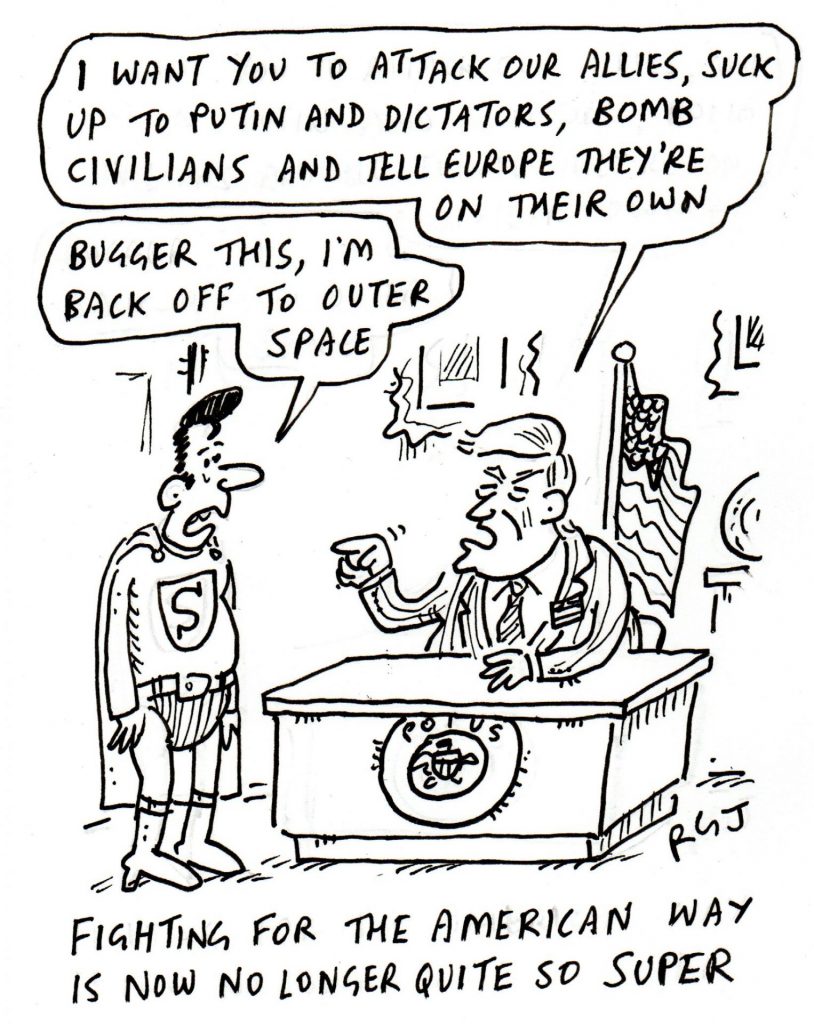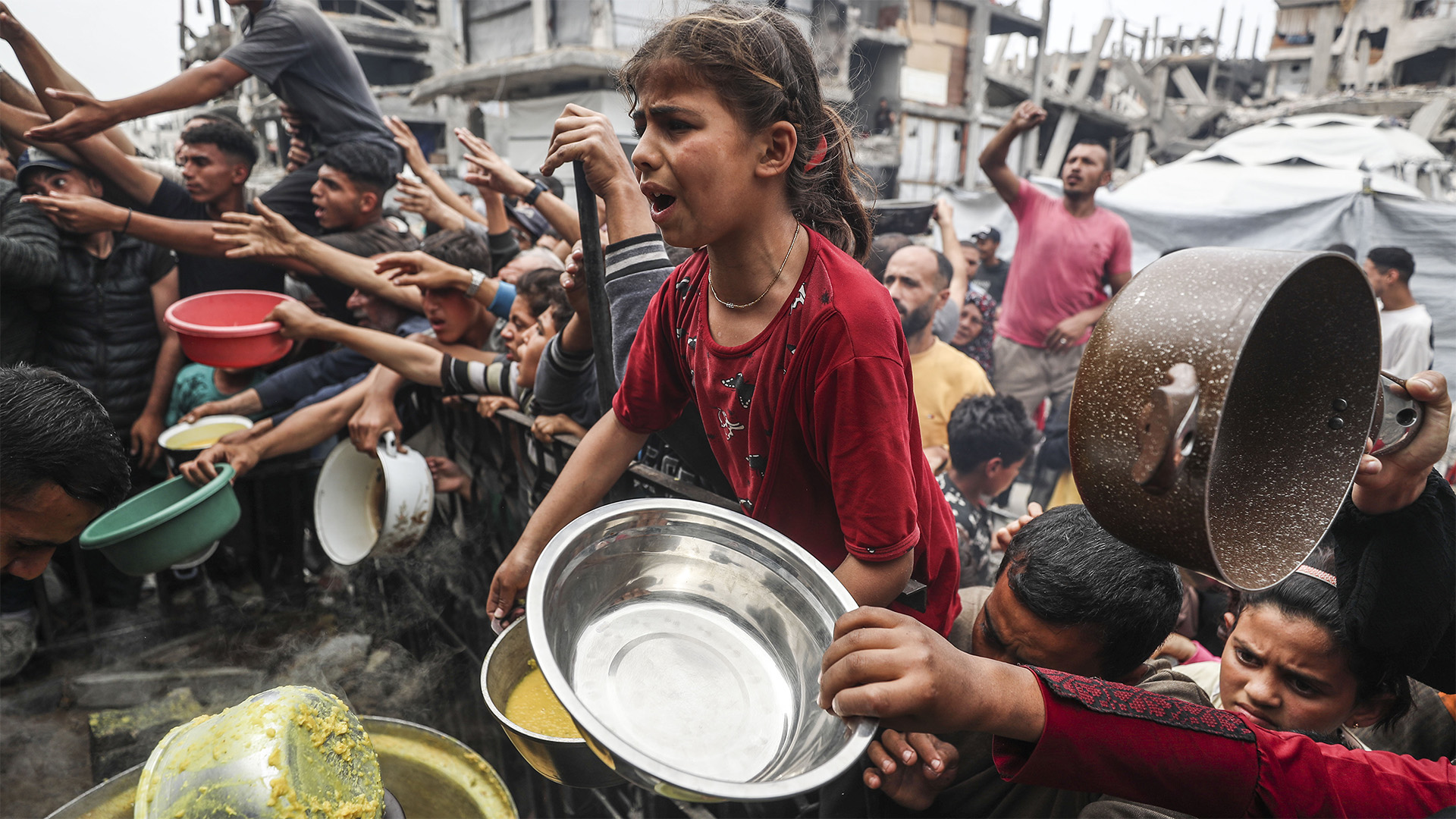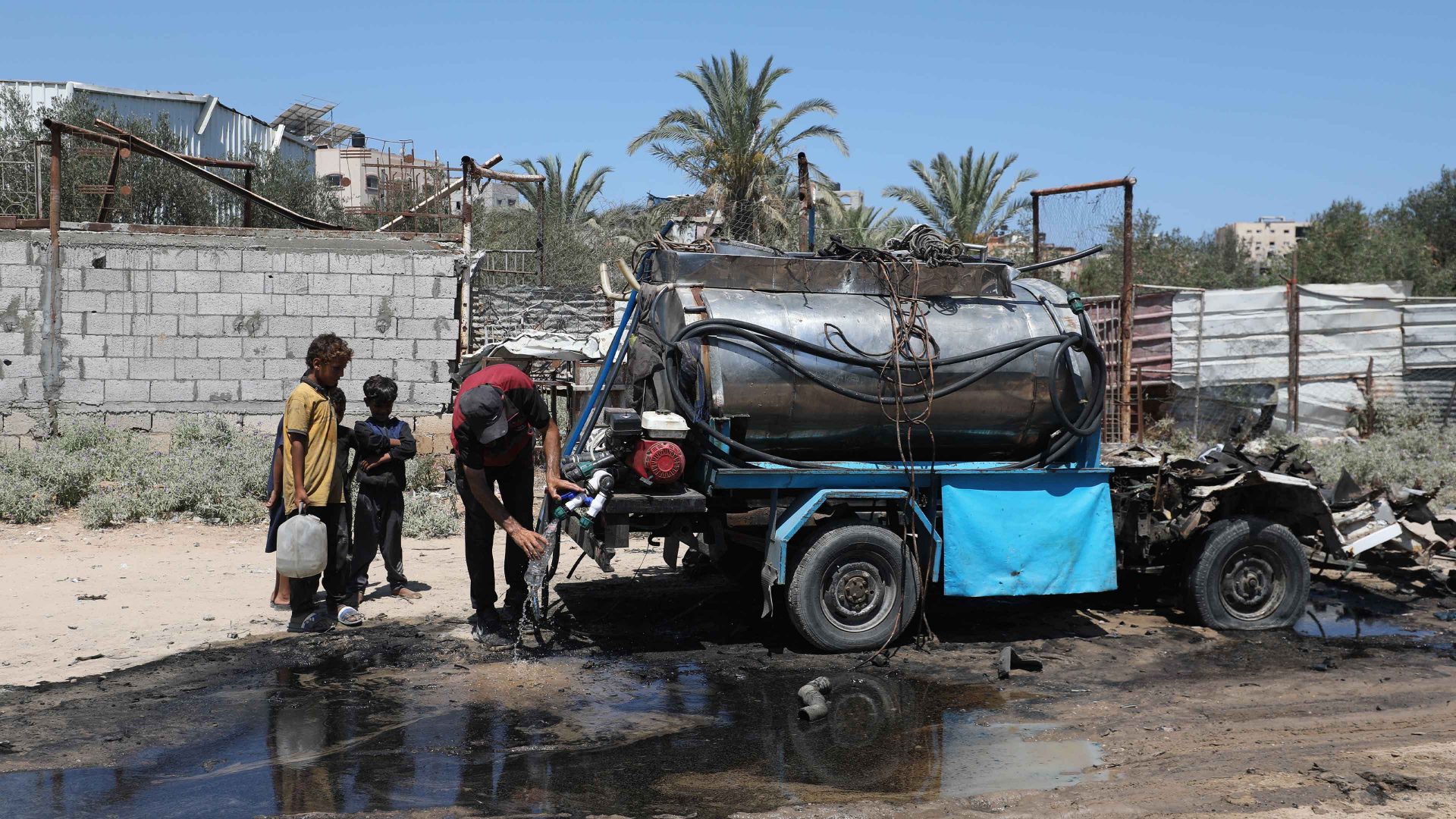Unsurprisingly, last week’s letters page was dominated by overwhelmingly positive responses to Matt Kelly’s front-page polemic of a fortnight ago, “Meanwhile, in Gaza…” People seemed to need to realise they were not alone in feeling the world was turning away from one of the greatest human catastrophes of our time.
Illustrated by the picture of a desperate mother holding her starving child, it brought home the chasm between the sheer scale of the continuing horror and the seeming lack of interest and engagement from large parts of the world’s politics and media.
It underlined the utter absurdity of the vast volume of political and media debate given over to a rapper’s chants at Glastonbury, set against the relative lack of coverage of mothers and children being shot and killed when queueing for food.
It was one of a number of things that came together around the same time to push me towards uttering the word I had been holding back on when discussing the Israeli government’s approach to war in Gaza … genocide.
Why the reluctance, asked those who feel that line had been crossed some time ago? Well, partly because genocide is such a monstrous crime, so it is not a charge to be bandied around too readily. Also, because history’s best-known and most hideous case, Hitler’s Holocaust, was the very genocide that led to the creation of modern Israel in the first place. But above all, perhaps, because since Hamas’s murderous and hostage-taking rampage of October 7, I have tried in both written and spoken word to be “fair to both sides”, to attempt to challenge, rather than feed, the awful polarisation characterising this debate. However, it has become harder and harder to be fair to both sides when one side is so unfair to the other.
Of course, Hamas is a horrible organisation and what they did on October 7 and many times before deserves opprobrium and punishment. But the manner and scale of Israel’s demolition of Gaza goes way beyond either legal proportion or respect for civilian life.
Just read the words of some of the most senior ministers in the Israeli government and you certainly hear their genocidal intent. Like national security minister Itamar Ben-Gvir, who last week insisted upon the “full conquest of the Gaza Strip, a complete halt to so-called ‘humanitarian aid’ and the encouragement of emigration of the Palestinian population”. Some of his colleagues and MPs go a whole lot further. The human rights group Law for Palestine sent me a 27-page document made up of statements that they assess amount to crimes against humanity and incitement to genocide.
And without minimising any of the lives lost or the hostages taken on October 7, I also find deeply offensive the constant efforts made to equate that event with the Holocaust itself. As Canadian writer Naomi Klein has observed, this is now part of a strategy both to justify any action by the Israeli government or defence forces, and to equate Gazans with the Nazis. It is deliberate dehumanisation. Alongside that, in the global PR campaign conducted by the Israelis, it is also now part of the strategy to dismiss as antisemitic anyone who criticises anything the government says or does.
Then study the plan of defence minister Israel Katz to put 600,000 Palestinians into a “humanitarian city” built from the ruins of Rafah, close to the border with Egypt – the only catch being that once you’re in you can’t get out. I will give you a Holocaust equation that brings to mind: concentration camps. This inhumane idea has also consumed fewer column inches or breathless TV two-ways than the chants at Glastonbury. Yet any reading of Article 7 of the Rome Statute on crimes against humanity will tell you that it falls squarely into that category.
Article 7, Paragraph 1 sets out 11 crimes against humanity “when committed as part of a widespread or systematic attack directed against any civilian population, with knowledge of the attack” and the one that is most relevant here is number four: “Deportation or forcible transfer of population.” This is further explored in Paragraph 2(d), saying it means “forced displacement of the persons concerned by expulsion or other coercive acts from the area in which they are lawfully present, without grounds permitted under international law”.
Even the head of the IDF seems to think there are no such grounds, which is why he insists the Rafah plan is not part of their current military planning. Powerful though the military may be, however, politics is stronger.
It was the reading of another ageing document, the genocide convention, agreed in the aftermath of the second world war, that finally moved me to decide fence sitting was no longer possible, or right.
Article 2 of the convention defines genocide as “any of the following acts committed with intent to destroy, in whole or in part, a national, ethnical, racial or religious group, as such:
(a) Killing members of the group;
(b) Causing serious bodily or mental harm to members of the group;
(c) Deliberately inflicting on the group conditions of life calculated to bring about its physical destruction in whole or in part.”
It is 2(c) in particular that is leading to ever louder charges of genocide from leading humanitarian organisations, and around half of the world’s governments.
They also point to Article 1: “The Contracting Parties confirm that genocide, whether committed in time of peace or in time of war, is a crime under international law which they undertake to prevent and to punish.” It is this that is leading organisations such as Médecins Sans Frontières to argue that some of the most important countries in the world, including our own, are complicit, because of their failure to “prevent or punish”.

Amid all this, to cap it all, Netanyahu, aware that he and Trump needed another story to distract from the president’s latest failure to deliver the ceasefire he had been telling us was coming, created a truly grotesque spectacle in the White House, handing over his nomination of Trump for the Nobel peace prize. Coming soon, arise, Sir Vinnie Jones, for services to fair play in football. Another G word. Gaslighting. Gaza continues to pay a horrible price for Netanyahu’s political survival, and Trump’s diplomatic modus operandi, which is to demand personal obsequiousness in exchange for political support.
Of course the problem with statutes and conventions is that Trump and his fellow strongmen leaders have no regard for them. How else could he slip into his tariff threat letter to the president of Brazil the apparent condition that right wing ex-president Jair Bolsonaro should be let off the charges against him? As with charges against Netanyahu, Putin, Marine Le Pen and of course himself, any and every legal claim against leaders he likes is dismissed as “a witch hunt”. In other words, “we are the masters now, the law is for losers”.
That is why Europe’s leaders should be doing far more to speak up for human rights and international law. They may feel the risk of upsetting Trump is too great. But the risk of allowing a complete breakdown, not just of the norms of the postwar world order but the entire framework of international law, is more consequential than the passing wrath of two ageing leaders leading their countries in a very dark and dangerous direction.




